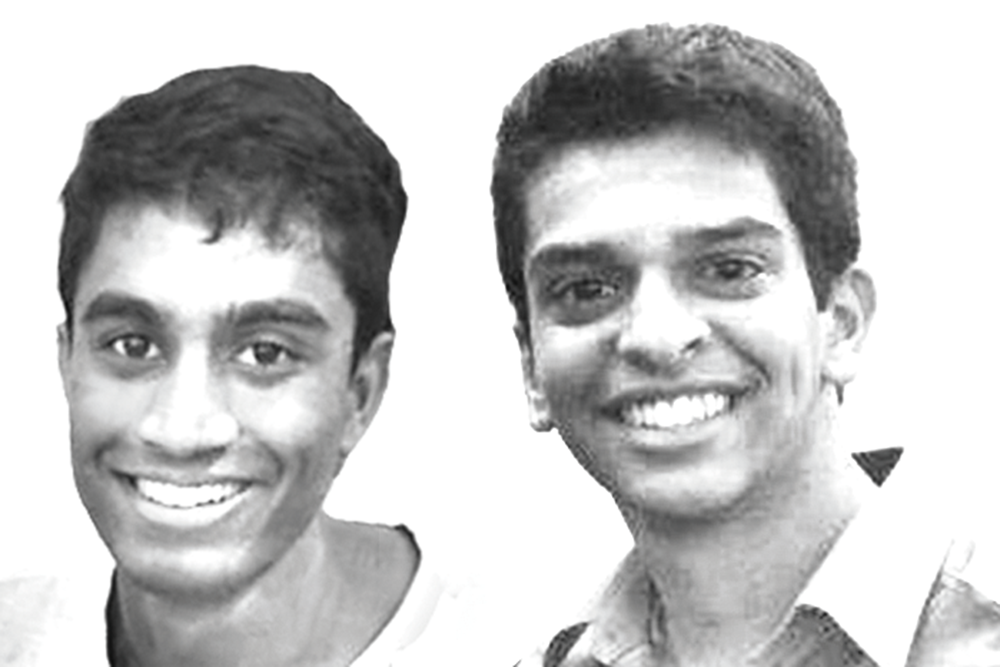We think there’s something to be said about getting away —about serving others only after we’ve learned to understand ourselves.
Last fall, one of us had the pleasure of meeting a young Filipino man, Rizal, in the heart of Manila. Rizal was passing through Manila en route to his home in the north of the Philippines. He had spent the past year in an ashram — a Hindu spiritual monastery — in India. “I was finding myself in solitude,” Rizal said. Before India, Rizal had wandered around South East Asia and Europe for almost seven years, visiting Singapore, Malaysia, Sri Lanka, Germany and England. “Trying to understand myself, to serve myself before I served others. Trying to place myself among others,” he expressed in broken English.
Rizal is German, Iranian and Filipino. He speaks four languages. His arm is a panoply of spiritual tattoos — from a Hindu OM to Catholic crosses and the Islamic hilal. His dreadlocks blanket most of his face and he is seldom found without a cigarette in hand. After globetrotting for most of his 20s, Rizal was finally settling down. He and his father had a self-sustaining “eco-farm” up north, where they tended to a small field of crops and educated three dozen villagers about environmentally friendly farming practices. Their patch of land borders some of the world’s most beautiful beaches.
Why is Rizal’s story important? We believe he can tell us something about the value of self-reflection in crafting a life in service of others. Rizal does not come from a privileged background. He’s not well educated or wealthy — he’s lived out of a cloth suitcase for most of his adult life. He’s never had a job interview and doesn’t own a credit card.
But Rizal has made self-reflection a priority. It was clear that he loved seeing the world. But more than that, Rizal had decided that understanding himself was a prerequisite for living a socially conscious life. And he had the will and courage to experiment with places that could contribute to his sense of direction.
In many ways, Rizal is lucky. He had been taught that he could do little to help others unless he fully understood himself. He wasn’t brought up in an environment that demands results at every corner. Indeed, for Georgetown students, it is often the things that we do have — aspirations, ambitions, expectations — that preclude us from serious self-reflection. That’s not to say that Rizal does not have hopes and dreams, but rather that those aspirations were, in his own words, “at the mercy of self-examination.” Rizal was not in a rush. He took ample time to meet himself and discover what brought him the most satisfaction.
Our point here is not to observe that Georgetown students are busy or in a rush and therefore incapable of thoughtful reflection. Nor are we are advocating that Rizal’s life should be a model for Hoyas. Being a chain-smoking, jet-setting hippie isn’t for everyone. And Rizal’s life is in many ways the antithesis of what many college students desire: stability, credentials, skills and so forth.
Rizal can, however, serve as a reminder that moments — or even years — of undisturbed self-reflection can enhance, rather than stunt, our capacity for productive pursuit. Our aversion to bouts of silence may seem like a necessary consequence of college life, but introspection can be a valuable tool. It helps students gain clarity and stay focused. More importantly, it allows us the time to develop and cleave to visions that are personally enriching and socially useful. We can best serve others if we first make the effort to serve ourselves.
Take some time to walk and reflect — to think about your passions and find the path on which you can contribute your greatest value add. For some, that may entail climbing the corporate ladder, and for others, that may be starting a company. Not everyone’s highest calling should necessarily come in the form of direct public service.
From those to whom much is given, much is expected. You don’t have to be a civil servant or a social worker to give back. What’s more important is that you consider the role that service plays in your life. When was the last time you spent an hour alone, pondering anything and everything? Solitude is one of life’s truest luxuries. We — and Rizal — urge you to reflect.
Rohan Shetty is a senior in the McDonough School of Business. Naman Trivedi is a senior in the School of Foreign Service. [and Service] appears every other Tuesday.




















